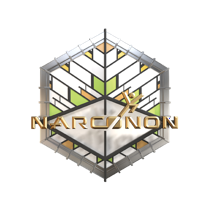The Hidden Forces Behind the Prescription Drug Epidemic
The State of Oklahoma has long struggled with exceptionally high rates of prescription drug abuse—high enough to keep the state in the number one spot nationally. Of course, there are earnest efforts at every level to curb the diversion of pills to the illicit market—schools offer drug prevention classes. The Oklahoma Board of Narcotics investigates and prosecutes. Local police take down drug dealers. But still the state lingers at the top of the list. An interview with a former Drug Enforcement Administration official reveals a painful reason that we have not made more progress in overcoming this curse.

As published on the Guardian website, Joseph Rannazzisi revealed that efforts to push back against the sources of this problem have been impeded by pharmaceutical corporation lobbyists who—as he put it—have Congress in a “stranglehold.”
Rannazzisi was the director of the DEA’s office of diversion control for ten years—that’s the office that prevents the diversion of pharmaceutical products from doctors’ offices and hospitals into the hands of drug addicts. This department investigates doctors who prescribe far too many pills and revokes their licenses when appropriate. Pharmacies that collude with doctors may also be investigated and prosecuted.
He complained that a law passed by Congress in April restricted the ability of the DEA to suspend the licenses of drug distributors and pharmacists accused of dispensing excessively high quantities of opioids. He referred to pharmaceutical companies as institutional drug traffickers and said that this law gives them a “free pass.”
It’s not hard to understand the motivation of pharmaceutical companies. The opioid painkiller business brings this small group of manufacturers more than nine billion dollars each year. That provides for plenty of funding for lobbyists.
Actions for Oklahoma Parents
There’s still plenty that Oklahoma parents can do to protect the young people in their households.
- Stay closely involved in your children’s lives. Know their friends and how those friends are doing in school and in life. Know where your child is going and don’t be embarrassed to check that they are actually there.
- If there’s a change for the worse in your child’s life, find out why, even if it takes a while to get to the bottom of it. Dropping grades, poor hygiene, abandoning activities or goals, isolation, inexplicable poor health or fluctuating moods—all these can be signs of drug use. Talk to your doctor to get help and confirmation if you have suspicions.
- Ask your local school if they have a drug prevention curriculum. Look online to see what the outcome of that curriculum has been and if it has been positively reviewed by other schools or parents. If they don’t have one, encourage them to implement one that has a good track record.
- LOCK UP ALL MEDICATIONS. These are different times—ones in which we can no longer leave medicine bottles sitting in medicine chests. Buy a locking box for pills and keep the pills in the locked box whenever they are not actually being used. This means you can’t keep a bottle in your purse anymore either.
- Get rid of old medications. Drop them off at a police station with a drug drop-off box or a pharmacy that will dispose of them. Or get a drug disposal pouch, available for sale online.

- Bring your family together for dinner as often as possible—five nights a week is a good achievement.
- Learn about the drugs your children are going to be offered or see their friends using so you can factually explain the dangers to them. You can learn more about all the current drugs on the Narconon Arrowhead website. Visit this page for information: http://www.narcononarrowhead.org/drug-abuse/
And as always, if one of your loved ones becomes addicted to prescription drugs or any substances, please call us. We can help. Call 1-800-468-6933.
REFERENCE
http://newsok.com/article/5501896
https://www.theguardian.com/us-news/2016/oct/31/opioid-epidemic-dea-official-congress-big-pharma


